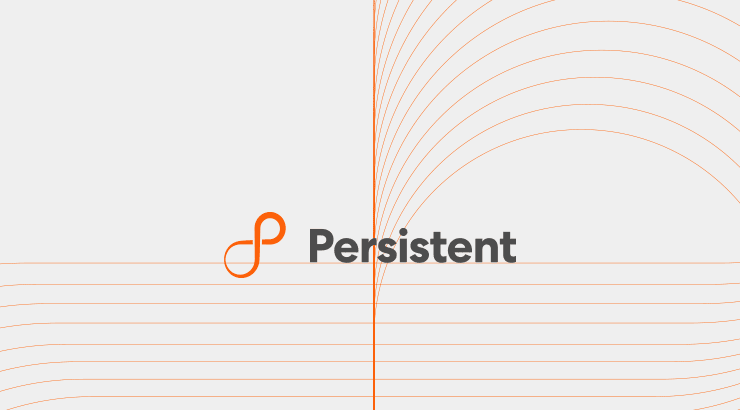In the ever-changing IT world, data-driven applications are increasingly falling under the radar of business leaders, which warrants continuous innovation in the technology and its alignment with the business. Gartner encourages organizations to consider three different system layers as per its Pace Layered Application Strategy:
- Systems of record
- Systems of differentiation
- Systems of engagement
Some of the components of systems of differentiation are API Management, business rules management, and process orchestration, which are essential elements of an enterprise integration platform. Integration acts as the glue between the systems of record and systems of engagement layers.
Enterprise Integration Market
The Enterprise Application Integration market was valued at USD 9.65 billion in 2020 and is expected to reach USD 22.69 billion by 2026 at a CAGR of 15.42%.
The key elements for this projected growth are:
- Cloud adoption triggering the need to integrate applications across clouds or between on-prem and cloud
- Marketplace integration through APIs
- Business to Business (B2B) integration using standards such as EDI, RosettaNet, and positional flat files.
- Explosion of devices necessitating IOT integration
Many projects get delayed due to a lack of integration across applications that represent different views of the same data. Organizations have many applications deployed on different platforms (on-prem, cloud, hybrid) operating in silos. This is done while maintaining large data sets that need to be exchanged with other applications to provide real-time single view of data and derive valuable business insights.
One can’t imagine a seamless order to settlement process without having an appropriate enterprise integration platform for real-time data exchange across CRM, ERP, Warehouse Management, Finance Management systems.
Integration Technologies
There are several integration tools available in the market that serve different areas such as iPaaS and Full Life Cycle API Management.
Integration Platform as a Service (iPaaS) is a set of automated tools that enable the development and governance of different software applications deployed in different environments (on-prem, cloud). An iPaaS platform provides integration capabilities through various connectors, mapping, orchestration, and business rules management.
Some of the key leaders in iPaaS are MuleSoft, TIBCO, Workato and Dell Boomi.
Full Life Cycle API Management covers the entire lifespan of an API’s life cycle such as planning, design, implementation, deployment, service discovery, versioning, monetization, and retirement.
In the Full Life Cycle API Management space, some of the key leaders are MuleSoft, Google Apigee and Microsoft APIM, to name a few. These products have comprehensive features in respective areas to offer end-to-end integration and API Management solutions.
Persistent’s Enterprise Integration Services
Persistent’s Enterprise Integration Services offerings enable software applications to seamlessly integrate and provide consistent, real-time view of data across channels/applications. This enables effective collaboration and information exchange across various applications within and outside the organizations.
The key to differentiation lies in business agility and user productivity. Persistent offers various solutions and accelerators that enable productivity gain and faster go-to-market.
Some key accelerators are summarized below:
1. Platform Enablement:
Standardizes integration implementation across the enterprise using various guidelines and frameworks by Persistent. We help clients to design and implement the right mix of tools and meet their specific enterprise integration requirements.
2. DevOps in a Box:
Software developers frequently commit their code across environment-specific branches during a development cycle. All these code changes need to be checked for errors, reviewed, validated, and tested in lower environments before promoting to a production environment.
Persistent’s ‘DevOps in a Box’ accelerator offers out of the box DevOps Pipeline automation across various platforms and integration tools on-cloud and on-premise while greatly reducing human errors and ensuring faster time to market.
3. Track and Trace:
With the increasing microservices architecture across the enterprise, a consolidated application logs and metrics framework is crucial for health monitoring, triaging, and troubleshooting. Consolidated application logs could greatly reduce troubleshooting time and enhance visibility into business transactions which cover multiple services and applications.
With a centralized dashboard for all the application logs and metrics, Persistent’s Track and Trace framework enables IT enterprises to proactively monitor the services, easily troubleshoot issues, and correlate business flows across systems.
4. Partner Data Hub:
Other than building the Integration platforms to connect various systems and channels within the enterprise, there is a need for collaborating with external partners, which requires a platform that helps with quick partner onboarding and management.
With its self-service nature and easy integration, Persistent’s Partner Data Hub makes it easy to onboard and manage partners.
5. Payments Marketplace:
Persistent’s Payments Marketplace primarily serves two areas: Escrow Management and E-Commerce.
Under escrow management, some of its use cases are managing escrow accounts in real-estate contracts, administering repayments in syndicated loans, administering budgets, and waterfall payment constructs in project financing.
Under e-commerce, some of the use cases are bill discounting, managing settlement accounts in e-commerce marketplaces, and micro loan servicing.
6. Virtual Multi-Tenancy on Cloud:
Organizations with legacy and single tenant applications find it difficult to offer a SaaS-based model as it requires multi-tenancy capability to deploy customer-specific instances, any customization required by the client, along with API management, governance etc.
Persistent’s virtual multi-tenancy accelerator for cloud fast-tracks this process by providing a layer that communicates with the backend applications. It offers API management and governance capability, thereby providing superior experience to the consumers.
7. Dynamic Client Registration with MuleSoft Anypoint and Azure AD:
MuleSoft expects external client providers to be OIDC (OpenID Connect) compliant. This accelerator provides a custom abstraction layer to transform Azure AD into OID compliant system that is needed by MuleSoft. This accelerator from Persistent helps clients to register Azure AD as an External Client Provider for their APIs.
Ensuring effective Enterprise Integration is going to be a key aspect for global enterprises in this era of an ever-growing number of applications. The necessity to operate across cloud and on-premises environments makes it even more challenging. Please reach out to us to know more about our solutions and accelerators in the integration space.





